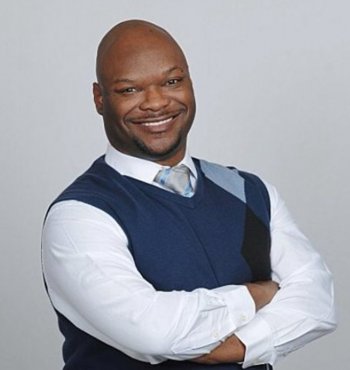MSU social scientist uncovers patterns of opioid misuse among bisexual female veterans, others
December 19, 2019 - Liz Schondelmayer
 Psychology professor Dr. Kaston Anderson-Carpenter, a behavioral and social scientist at Michigan State University, is uncovering an alarming pattern of prescription opioid misuse among certain groups of underrepresented veterans.
Psychology professor Dr. Kaston Anderson-Carpenter, a behavioral and social scientist at Michigan State University, is uncovering an alarming pattern of prescription opioid misuse among certain groups of underrepresented veterans.
Published in the journal Drug and Alcohol Dependence, the study identifies a pattern of significant increases in the misuse of prescription opioids among bisexual veterans - especially bisexual women veterans - and veterans 50 years old within the past twelve months.
According to Dr. Anderson-Carpenter, the findings of the study contradict the past body of research comparing heterosexual drug misuse with non-heterosexuals, finding that gay and lesbian veterans misused prescription opioids at the same rate as heterosexual veterans.
Here are the top three findings from Anderson-Carpenter’s research on the topic:
1. Bisexual women veterans are especially at risk for recent prescription opioid misuse.
Perhaps the most urgent finding from this study, Dr. Anderson-Carpenter and his research team identified that this misuse was especially prevalent in one group of veterans. For bisexual women, the risk of recently misusing opioids is more than 3 ½ times greater than those of heterosexual and lesbian women
“When it comes to recent prescription opioid misuse, we really need to prioritize and develop interventions that are centered on the experiences of bisexual women veterans, because they have the greatest risk for recent prescription opioid misuse within 12 months of when our data was collected,” explains Dr. Anderson-Carpenter.
2. Bisexual veterans have elevated risks of prescription opioid misuse.
Contrary to past literature, Dr. Anderson-Carpenter found that gay men and lesbian women misused prescription opioids at the same rate as heterosexual men and women. However, his new research found that bisexual veterans--regardless of gender--are three times more likely to have misused opioids at least once in their lives.
“I think it has to do with biphobia and the erasure of bisexual experiences in society,” says Dr. Anderson-Carpenter. “For example, some military veterans may culturally or mentally adhere to the ‘Don’t Ask, Don’t Tell’ policy. Even though it’s been repealed, they may still have those same feelings about disclosing their sexual orientation. We must also remember that bisexual individuals experience unique stigma because of attitudes, policies, and practices that still promote binary ideas of sexual orientation.”
3. Older veterans have lower odds of misusing prescription opioids throughout their lifetime, but have much higher odds of misusing them in the past 12 months.
Past literature, according to Dr. Anderson-Carpenter, has found that older adults are less likely to misuse opioids than younger adults. But for military veterans who have misused in the twelve months leading up to the data collection, those over 50 misused prescription opioids significantly more than veterans aged 18-34.
The reason for this increase? “Veterans who are 50 years or older may have been in the military longer, they may have seen more combat, or it could be that the prescription opioid misuse is a way of coping with trauma, PTSD, and other conditions,” notes Dr. Anderson-Carpenter.
Dr. Anderson-Carpenter hopes that this study will stimulate further research that is inclusive of those with diverse gender identities and that explores the intersection of sexual orientation, gender and the military culture in relation to prescription opioid misuse.
He is also hoping to prompt the creation of new prevention, harm reduction and intervention programs specifically tailored to the culture and the needs of bisexual women veterans - which means bringing the veteran community to the table.
“We need to make space for veterans to have a say in how intervention programs are being developed,” says Dr. Anderson-Carpenter. “No one knows the military culture better than a military veteran, so those of us in positions of power need to reach out to veteran groups to create programs and strategies which are culturally appropriate.”

